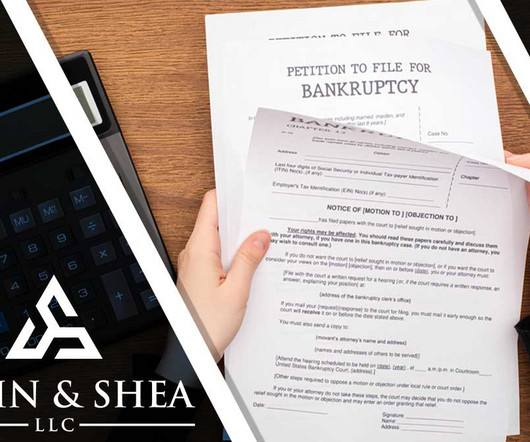Bankruptcy Chapter 7 vs 13: Which Is The Best Option?
Debt Free Colorado
DECEMBER 9, 2021
Consider your income, assets, creditors, expenditures, and your ability to pass the means test while selecting between Chapter 13 and Chapter 7. You should get legal assistance from a knowledgeable bankruptcy attorney in Denver. The United States Bankruptcy Code governs both chapter 7 and chapter 13 bankruptcy.
















Let's personalize your content